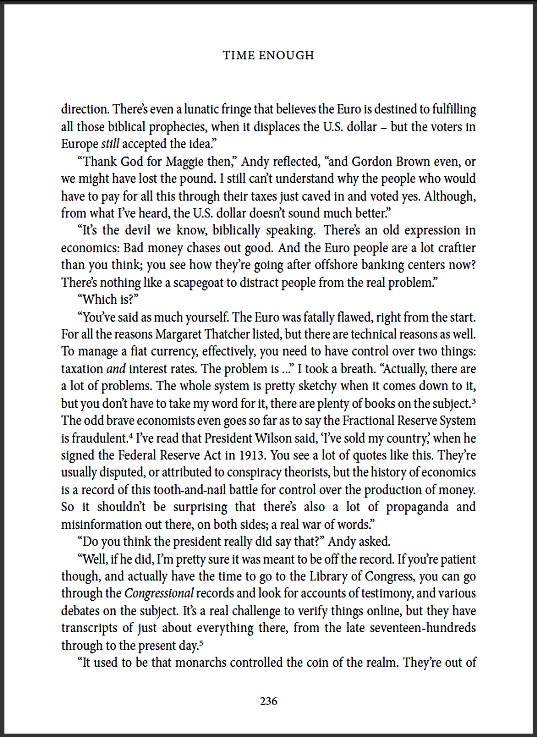
| Currently Gallery Original Prints Books Bio Contact Home |
Time Enough: An Amoral Tale
(Chapter 16 excerpts: Pgs 236 – 241)
 |
| 3 |
Selected book: Andrew Ross Sorkin, Too Big to Fail (New York: Penguin Group,2009). Adam Smith, The Wealth of Nations, 1776 (New York: F.P Collier & Son, 1937). William Greifer, Secrets of the Temple, How the Federal Reserve Runs the Country, New York: Simon and Schuster, 1987). Paul Hellyer, Funny Money: A common sense alternative to mainline economics, Toronto: Chimo Media,1994). |
| 4 |
The Fed and Fractional Reserve Banking have long been criticized by sound money advocates. Notable economists such as Nobel Laureate Milton Friedman have weighed on the subject. Fraud, however, is a word serious economists generally shy away from, or use indirectly. On the first page of John Kenneth Galbraith’s book, The Economics of Innocent Fraud: Truth for Our Time, he asks (with regards to the system as a whole): ‘How can fraud be innocent?’ The implication being, a fraud of some description does exist. |
| 5 |
The proceedings of the U.S. Congress are recorded daily and issued every two weeks. The daily editions are compiled, then published as a permanent record. There are four sections: the House, Senate, Extensions of Remarks and Daily Digest. With the exception of ‘Remarks,’ which was added in 1940, this record has been kept since 1873. Documents exist, in various other forms, from much earlier dates. |
| © W. David Ward All rights reserved |